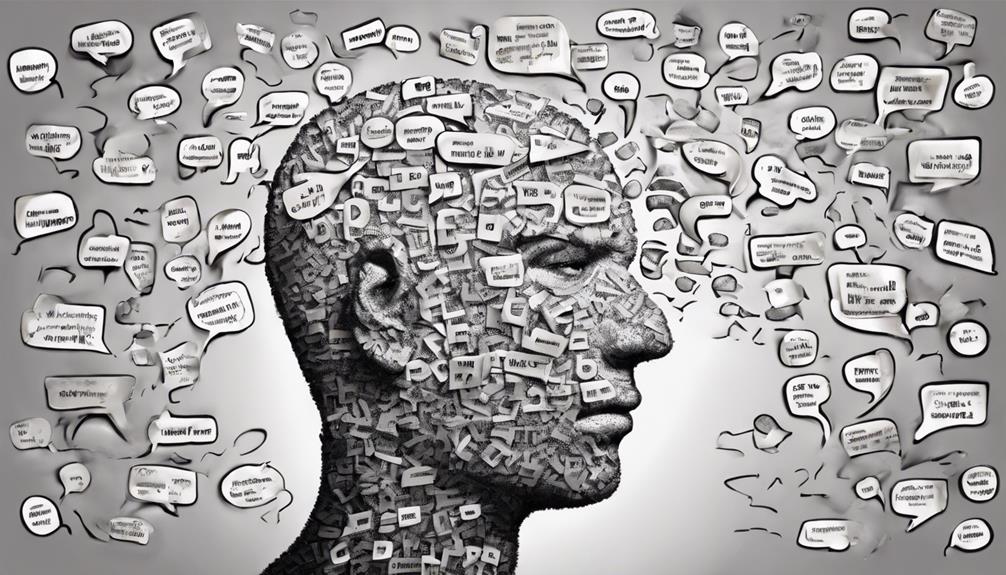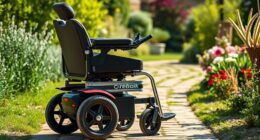To identify early signs of dementia, pay attention to symptoms such as memory loss, having trouble remembering where items are placed, and struggling to complete tasks. If you find it difficult to remember plans or if daily life is being affected, these are warning signs. Seeking healthcare assistance is essential if you encounter challenges with familiar activities like following recipes or organizing a grocery list. Having trouble managing bills or tasks, forgetting to complete activities, or facing difficulties with hobbies or games are all concerning signs. Forgetting important dates, feeling disoriented in familiar places, and struggling to keep track of time could also indicate dementia. It is important to recognize these clues early in order to receive appropriate support.
Learn more about the complexities of dementia and the interventions available by following this link.
Key Takeaways
- Memory loss, especially recent events, is a key early sign.
- Difficulty with familiar tasks like following recipes may indicate early dementia.
- Confusion about time or place can be an early warning sign.
- Problems with speaking or writing can signal early dementia.
- Changes in behavior, such as increased irritability, may point to early dementia.
Memory Loss as an Early Sign
Memory loss frequently emerges as an early sign of dementia, impacting our ability to recall recent events and affecting daily tasks. Forgetting where we placed items, struggling to finish tasks we started, or having difficulty remembering plans are all signs that could indicate the onset of dementia.
It's important to recognize these early signs as they can interfere with our daily lives and signal the need for further evaluation by healthcare professionals. If you find yourself repeatedly forgetting things that you normally remember, such as appointments or where you put your keys, it may be time to contemplate speaking with a healthcare provider.
Challenges in Daily Tasks

When faced with challenges in daily tasks, such as difficulty completing familiar activities and forgetting routines, it's important to pay attention to these signs.
These issues might include problems following a recipe or organizing a grocery list, which can indicate early dementia. Seeking help and guidance from healthcare professionals can provide valuable support and guidance in managing these challenges effectively.
Task Completion Difficulty
Are daily tasks becoming more challenging for individuals in the early stages of dementia? Task completion difficulty is a common early sign.
Managing bills, following recipes, or learning new things may become problematic. People with early dementia might struggle with organizing tasks or following rules in games.
Starting tasks but forgetting to finish them, like grocery lists or household chores, can also indicate early dementia. Individuals may find it hard to complete familiar activities such as driving to known places.
Learning new routines could be challenging as well. If you notice these difficulties in yourself or a loved one, it might be time to consult a healthcare professional for further evaluation and support.
Forgetfulness in Routines
Struggling to remember daily routines like brushing teeth or preparing breakfast can serve as a notable indicator of early dementia. Forgetfulness in routines, such as difficulty following familiar schedules or repeatedly forgetting daily chores like laundry, could be warning signs of early dementia.
If someone finds it challenging to remember important tasks like taking medication, locking doors, or turning off appliances, it may point to memory loss associated with early dementia. Additionally, trouble remembering to pay bills or keep track of important documents could be early signs of dementia.
It's important to pay attention to these lapses in memory and seek medical advice if these forgetful moments become more frequent or severe.
Difficulty With Familiar Activities
Experiencing challenges with everyday tasks that were once second nature could be an early indicator of dementia. Struggling with familiar activities like cooking, following recipes, or engaging in hobbies that used to bring joy may signal early signs of dementia. Difficulty with tasks that were once routine, such as doing laundry, managing finances, or organizing daily schedules, could also point to cognitive changes.
Forgetting how to play familiar games or follow established rules, like those of card games or board games, might be a symptom worth noting. Needing help with daily tasks that were previously easy to manage, such as making a grocery list or planning meals, could indicate early dementia. Additionally, finding it challenging to navigate familiar locations, like getting lost in familiar neighborhoods or struggling to follow familiar routes, may also be early signs of cognitive decline.
If you or a loved one are experiencing these difficulties, it's essential to seek guidance from a healthcare professional for further evaluation and support.
Confusion About Time and Place

Confusion about time and place in dementia can manifest as forgetting important dates, such as birthdays or anniversaries, and struggling to recall what day of the week it is. Additionally, individuals may have trouble remembering the current season or getting disoriented in familiar places.
These signs of time disorientation and place memory lapses are pivotal indicators to watch for when evaluating early dementia symptoms.
Time Disorientation Signs
Getting through daily life can become increasingly challenging for individuals showing signs of early dementia, particularly when faced with disorientation regarding time and place. Memory loss and disorientation about time are common early signs of dementia. People experiencing early dementia may struggle to keep track of dates, seasons, and the passage of time.
This confusion can lead to forgetting appointments or how they arrived at a certain location. It isn't uncommon for individuals with early dementia to become mixed up about the day of the week. Additionally, difficulty understanding events that aren't happening immediately can serve as a key indicator of early dementia.
Recognizing these early indicators is essential in providing support and care for those affected.
Place Memory Lapses
In the early stages of dementia, individuals may find themselves disoriented about both time and place, leading to memory lapses and difficulties recognizing familiar locations. Place memory lapses can manifest in various ways:
- Forgetting where someone is or how they got there due to confusion about time and location.
- Having trouble recognizing familiar places or landmarks because of spatial disorientation.
- Getting lost in known environments, like neighborhoods or familiar routes, indicating early signs of dementia affecting spatial orientation.
These signs can also include forgetting events, misplacing items frequently, and being unable to retrace steps to find them. Recognizing these manifestations early on can help in seeking appropriate support and interventions for individuals experiencing these challenges.
Trouble Finding the Right Words

Experiencing difficulty in finding the appropriate words can serve as an important indicator of early dementia onset. When individuals struggle with expressing themselves or encounter challenges with vocabulary, it may signify early cognitive decline. Speech issues like stopping mid-sentence, repeating words, or having trouble following conversations could all point towards early dementia symptoms. Changes in language abilities, such as finding it hard to name objects or experiencing issues with word recall, are common early signs of dementia. To help you better understand these concepts, let's explore the following table:
| Early Dementia Symptoms | Examples | Importance |
|---|---|---|
| Difficulty finding the right words | Stopping mid-sentence, repeating words | Indicates cognitive decline |
| Challenges with vocabulary | Trouble naming objects | Early sign of dementia |
| Changes in language abilities | Trouble expressing thoughts coherently | Signifies onset of dementia |
| Speech issues | Trouble following conversations | Linked to early dementia |
Behavioral Changes and Personality Shifts

Shifting from the prior discussion on language difficulties linked with early dementia, behavioral changes and personality shifts emerge as prominent indicators of cognitive decline. When observing someone for signs of early dementia, it's vital to pay attention to shifts in their behavior and personality.
Here are some key points to ponder:
- Increased Irritability and Mood Swings: Individuals may exhibit heightened irritability, becoming easily upset over small matters, and experience frequent mood swings.
- Apathy and Social Withdrawal: Apathy, a loss of interest in hobbies, and reduced social interactions, such as spending less time with friends and family, are common signs.
- Poor Judgment and Neglect of Grooming: Early dementia can result in poor decision-making abilities, neglecting personal grooming, and displaying questionable judgment in various situations.
Recognizing these behavioral changes and personality shifts, alongside memory loss, can assist in identifying early signs of dementia. It's vital to approach individuals with compassion and understanding as they navigate these challenging symptoms.
Frequently Asked Questions
How Do You Know if It's Memory Loss or Dementia?
We can distinguish memory loss from dementia by noting persistent, disruptive forgetfulness that impairs daily tasks and independence. Misplacing items, difficulty retracing steps, and significant departure from usual memory abilities indicate possible dementia beyond typical aging memory decline.
What Is the First Stage of Dementia?
We acknowledge that the first stage of dementia involves initial challenges like memory problems, thinking difficulties, and communication issues. Recognizing these signs early, providing support, and planning for the future while focusing on the individual's abilities is crucial. It is essential for caregivers and loved ones to educate themselves about the progression of the disease and the specific needs of the person affected. Early onset dementia caregiving, in particular, presents unique challenges as it often affects individuals who may still be active in their careers or family roles. By fostering a supportive environment and encouraging autonomy where possible, caregivers can help maintain the individual’s quality of life for as long as possible.
What Is the Number One Trigger for Dementia Behavior?
Memory loss serves as the primary trigger for dementia behavior. Forgetting recent events, important dates, or details in conversations can indicate early signs. Recognizing these signs through memory challenges is vital for intervention and symptom management.
Can You Slow Down Dementia if Caught Early?
Absolutely, early detection allows for interventions that can slow down dementia progression. Lifestyle choices, cognitive exercises, and addressing risk factors all play an essential role. Regular assessments and prompt treatment are key in managing early signs effectively.
Conclusion
To sum up, identifying early signs of dementia through memory loss is vital for seeking timely medical assistance. It's like spotting a warning sign on the road before reaching a dangerous curve.
By paying attention to memory lapses, challenges in daily tasks, confusion about time and place, and behavioral changes, individuals can take proactive steps to address potential cognitive decline.
Remember, early detection can lead to better management and support for those experiencing dementia symptoms.









